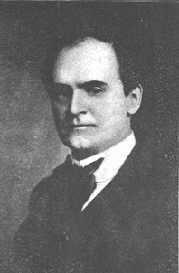"The Kybalion" is a spiritual classic
published in 1908 summarizing Hermetic philosophy, or at least a modern
adaptation of the same. The text is purportedly a modern commentary on a secret
Egyptian text, the Kybalion, known only to initiates. As usual, there is no
evidence that the original text exists outside the imagination of the anonymous
authors, who call themselves The Three Initiates. Authorship of "The
Kybalion" is disputed, but the main suspect is one William Walker
Atkinson, who studied New Thought, occultism and yoga. Admirers of Paul Foster
Case claim that he was a co-author.
I don't deny that "The Kybalion" is a pretty good introduction to the Hermetic philosophy. Of course, it has to be read with some care, since the evolutionary perspective of Theosophy shows up now and then. This is arguably a typically modern trait. At one point, "The Kybalion" actually claims that Herbert Spencer must be a reincarnation of Heraclitus and an ancient Egyptian priest! Apart from this major howler, the text is refreshingly free of the usual speculations about Atlantis, aliens from Venus and similar stuff.
Personally, I was stuck by the certain contradictions in the message of The Three Initiates. On the one hand, the author or authors have an impersonal view of the Divine, calling it "THE ALL" (caps in original). On the other hand, they refer to The All as "Universal Living Mind". But living mind implies a person. Even if we assume that the term is a symbol for an unfathomable reality, one still wonders why the authors use a personal metaphor, rather than an impersonal one, such as the ocean?
"The Kybalion" further states that everything is part of a polarity, for instance a polarity between Love and Hate, Courage and Fear, or Good and Evil. Since The All is everywhere, this means that evil is part of the divine - a common "pantheist" idea (and perfectly logical, given the premises). However, "The Kybalion" also states that the Negative pole of the polarity is subordinated to the Positive pole. Unsurprisingly, it turns out that Love, Courage and Good are positive and hence higher than their negative counterparts. But if so, there is a point on the scale at which Goodness *isn't* relative at all, but an absolute value. How does that square with the idea of an impersonal "All"? Why should it care about "courage" and "fear", two concepts that are meaningless except to persons?
Of course, since "The Kybalion" states that the universe is paradoxical, that every truth is a half-truth and that all truths are reconciled in the higher unity of Hermetism, I suppose The Three Initiates can't really be picked apart in this way, anymore than one can disprove Huston Smith!
"The Kybalion" is a good text, but this reviewer somehow feels that their concept of the Divine might be inadequate. It's as if William Walker Atkinson spotted its personal aspect, but through a glass darkly...

No comments:
Post a Comment